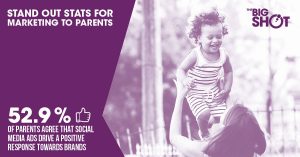 Content marketing remains healthy, vibrant and growing voraciously. The stats are staggering: in 2011, a study showed that 27 million pieces of content were shared every day, and today 3.2 billion images are shared daily. With this much content out there, how do you make content work for you and what’s the right kind of content for your specific audience.
Content marketing remains healthy, vibrant and growing voraciously. The stats are staggering: in 2011, a study showed that 27 million pieces of content were shared every day, and today 3.2 billion images are shared daily. With this much content out there, how do you make content work for you and what’s the right kind of content for your specific audience.
We recently carried out the latest iteration of our annual survey, ‘The Content State of Mind’. In this, we examine how UK consumers feel about content marketing, and we explore how their feelings should influence the type of content that businesses need to create to best serve their marketing and sales objectives. While some of the findings may reinforce your expectations, others have been revealing.
We know parents are a huge market with enormous spending power. They need products, services and ways to entertain their children from the age they are born right up until they’re independent enough to entertain themselves. Summer is a season of opportunity for brands. On back to school spending alone, it is estimated parents spent £1.48 billion in 2017 and brands are touting their activities, festivals, hotels and holidays.
As a brand, that should equal years of building a relationship with a parent. So what are the key things you need to keep in mind when marketing to parents?
- Ads on social media reinforce positive sentiment: Almost 53 per cent of parents who saw an ad that made them feel positively about a brand saw it on social media. This dropped to 5.7 per cent for newspapers and magazines.
- Traditional media becomes more important to parents as children get older: Interestingly, as the age of the child increased, brand positivity attributed to magazine and newspaper increased incrementally, rising to 31 per cent for those with children who are ten years old.
- Reviews are important to parents of young children: Parents with a child under one year old are three times more likely to buy a product based on an online review, compared to adults without a child (32.4 per cent compared to 10 per cent).
- Time-poor parents of under-sevens avoid TV ads: Over one-third of parents (41 per cent) who have had a child in the last seven years actively avoid TV adverts, by fast forwarding or changing the channel. This is compared to 31 per cent for the wider population.
- ‘How to’ videos drive new parent purchasing: 26.5 per cent of parents with children under a year old said they would buy cosmetics based on a how-to video, compared to 19 per cent of non-parents. Stats are similar for household products too: with 27.5 per cent more likely to make a purchase compared to 18.8 per cent of non-parents.
- Live streaming has a bigger impact on larger purchasing decisions: Just under one in five (18 per cent) of parents with children under five said they would use a live stream to influence their purchase decision when buying a car. Only one in ten would use this for smaller purchasing decisions, like hospitality and restaurants.
 What these stats demonstrate is that there are some clear rules for engaging parents. Social media is key for positive brand awareness, but traditional media should not be discounted as children get older. Third party endorsements matter more: parents tend to trust reviews, ‘how to’ videos, influencer content, product demos and live streaming, especially when it comes to big purchases, while TV ads are more likely to be skipped over.
What these stats demonstrate is that there are some clear rules for engaging parents. Social media is key for positive brand awareness, but traditional media should not be discounted as children get older. Third party endorsements matter more: parents tend to trust reviews, ‘how to’ videos, influencer content, product demos and live streaming, especially when it comes to big purchases, while TV ads are more likely to be skipped over.
This seems to hold truer for parents with younger children, which may reflect the age of parents when they have children. Research shows that 40 per cent of Millennials, a generation totalling 80 million, are parents today.
Article by James Erskine, Managing Director, The Big Shot
About James:
James Erskine has worked in the arena of ‘content’, ‘advertorials’ and ‘advertiser funded programming’ for the last twenty years. He is currently MD at The Big Shot where he and his team fuse editorial, social and media partnership techniques to deliver business results for a broad range of clients. He is also a prolific speaker on influencer marketing appearing regularly across TV and Radio.
Source: The Big Shot

You must be logged in to post a comment Login